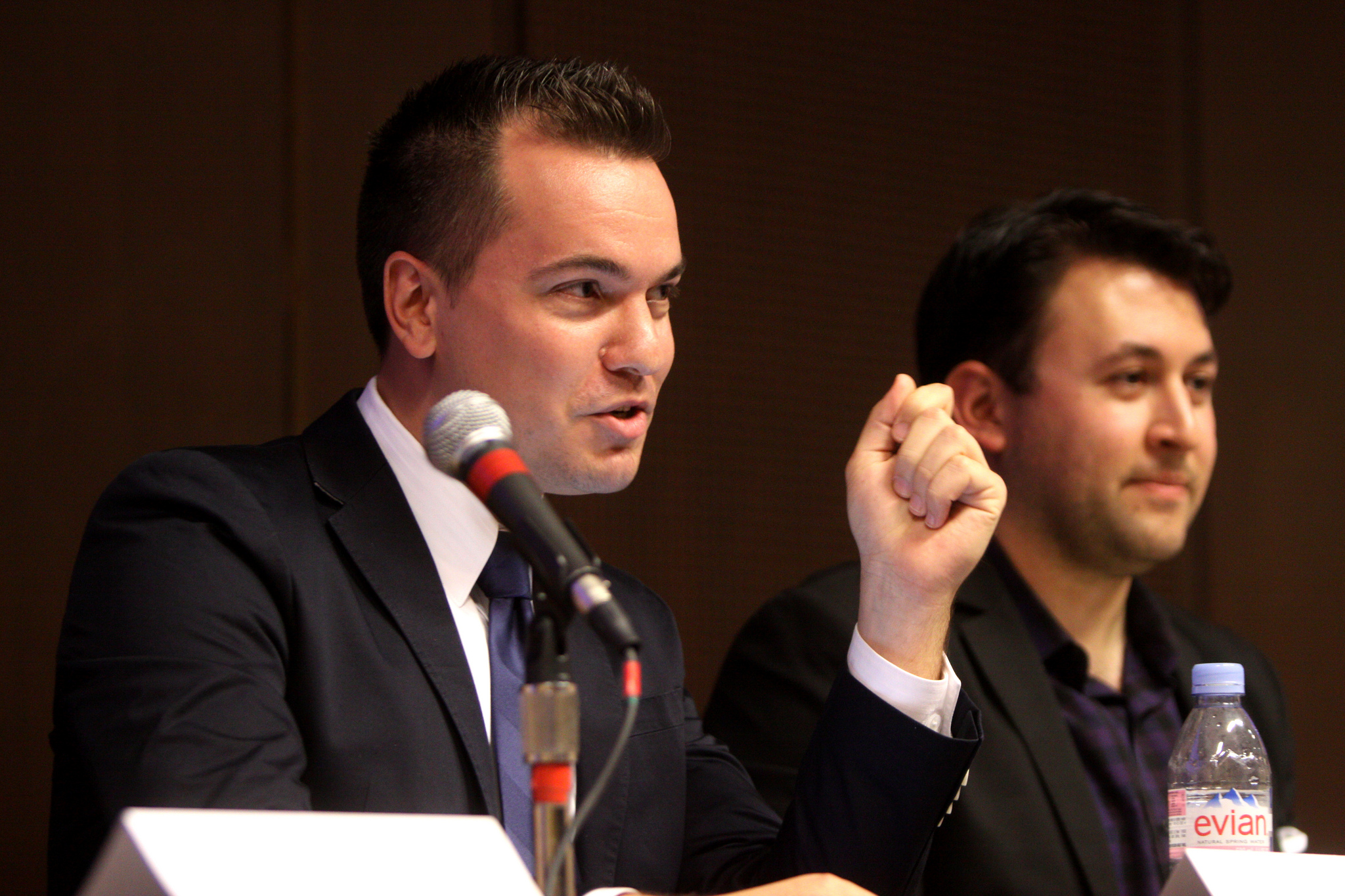In 2016, growing partisanship culminated in a bitter presidential race between two of the least popular candidates in history. Voters are increasingly motivated by the political causes they oppose rather than ones they support. But Americans are tired of choosing between the “lesser of two evils.” The country needs a moderate, likable candidate who can bridge the ideological gap with a balanced middle ground.
Austin Petersen, a 36-year-old libertarian from Missouri, can do just that.
This summer, the HPR interviewed Petersen at the 2017 Young Americans for Liberty National Convention. He is a passionate, articulate activist with a large youth following. Last year, he placed second in the Libertarian party presidential primary. In 2018, he will enter Missouri’s 2018 senate race as a Republican, hoping to unseat incumbent Democrat Claire McCaskill.
Although he will run as a Republican, Petersen argues that he differs from most conservatives. While he supports economic policies such as free trade and respect for private property, he also fights for personal freedoms like recreational drug use and internet privacy. The enthusiastic Midwesterner could become a source of inspiration for disaffected citizens who seek a centrist alternative to two increasingly polarized parties. If successful, his campaign would provide a model of how to forge a viable middle ground in the modern political arena.
Petersen calls himself “the Republican to beat” in the race. He demands criminal justice reforms to mend the damage caused by previous policy initiatives such as the war on drugs and mandatory minimum sentences. While these positions mirror those of mainstream Democrats, Petersen emphasizes the importance of making the government more efficient, not necessarily larger. Petersen’s social liberalism could set him apart from the other candidates and attract the votes of millennials, who often lean left on social issues. On those issues, he argues, millennials favor him over his rivals, including the incumbent Democratic senator.
While he’s conventionally liberal on social issues, Petersen also advocates slashing the corporate income tax and cutting business regulations, which he blames for sending jobs overseas. He’d like to abolish the income tax entirely, and supports a flat 15 percent income tax as a first step toward that goal.
However, Petersen doesn’t see his social liberalism and fiscal conservatism as incompatible. To him, philosophical consistency requires supporting individual freedom of all kinds. For example, he believes those who support others’ right to control their body should also support their right to do what they want with their money.
Many people lean libertarian on at least one issue. The challenge, Petersen argues, is to get them to see the logical consistency of supporting freedom across the board.
The recent debacle over transgender military members showcases Petersen’s ability to find moderate middle ground. When asked about President Trump’s tweets regarding the exclusion of transgender people from the military, he quoted Barry Goldwater: “You don’t need to be straight to fight and die for your country. You just need to shoot straight.”
At the same time, Petersen argues against government funding of transition-related medical procedures for transgender military members. He argues that the corporatist policy would simply redistribute wealth from the American people to the biggest pharmaceutical companies, who benefit from government-subsidized medical procedures. Here, Petersen finds a balance: the government must not discriminate in the opportunities it provides, but it should also refrain from actively funding people’s personal decisions. This stance attracts both small-government conservatives and liberals concerned about government handouts to big business.
Libertarianism is often perceived as too impractical to appeal to a broad enough base. In the 2016 election between two of the most unpopular candidates in history, Gary Johnson, the Libertarian nominee, barely managed to capture four percent of the popular vote. But libertarians’ poor political track record underrepresents the popularity of libertarian viewpoints; polls indicate that about one in four American hold libertarian beliefs, although they may not know it.
Several libertarian or libertarian-leaning candidates who campaign as Republicans have become prominent Congressional figures. For example, Representative Justin Amash (R – Mich.) has received attention for his vocal critiques of the Trump administration, and Senator Rand Paul (R – Ky.) has staged filibusters and sit-ins to force the senate to reconsider drone policy, surveillance, and the authorization of military force. Neither Amash nor Paul have lost a Congressional election. While Americans rarely support candidates with a Libertarian Party label, libertarian Republicans have managed to avoid the stigma of impracticality. Petersen could capitalize upon this distinction, appealing to the significant portion of Americans who hold libertarian views but avoid the Libertarian Party label.
Libertarians have a successful track record of forging bipartisan compromise in Congress. As minorities who support both lower taxes and a non-interventionist foreign policy, they have learned to work with both parties to accomplish their goals. In the past, libertarian-leaning legislators have partnered with progressives such as Senator Kamala Harris (D – Calif.) on criminal justice reform, as well as with conservatives like former congressman Mick Mulvaney on entitlement spending. That history of cooperation could help libertarian candidates like Petersen quickly forge friendships on both sides of the aisle.
While Petersen thinks his philosophy appeals widely, he recognizes that libertarians have a marketing problem. “Libertarians aren’t cool,” he says. “liberals do their marketing well. But no one wants to listen to a stuffy old white guy talking about freedom.” Petersen is neither stuffy nor old. In an age of increasing polarization between two parties, he has a serious shot at making libertarianism appealing. His centrist positions could strike a balance between the parties, providing a voice of reason in the senate that motivates Americans to vote for compromises they support, rather than against candidates they oppose.
Image Credit: Flickr / Gage Skidmore
